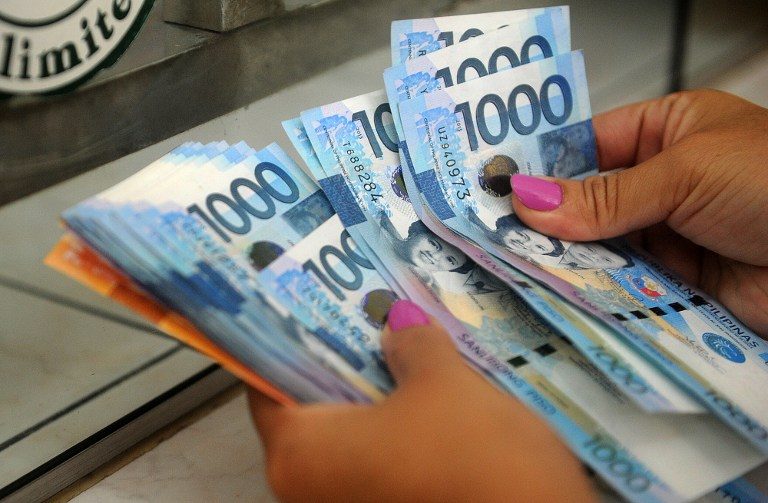SUMMARY
This is AI generated summarization, which may have errors. For context, always refer to the full article.

MANILA, Philippines — The government’s comprehensive tax reform package could be key to determining the peso’s future, according to a risk consultant.
“[Tax reform] is probably for us the most important thing on the table right now in terms of economic policy,” said Bob Herrera-Lim, managing director at economic think tank Teneo Strategy, in a Rappler Talk interview on Wednesday, February 22.
On Tuesday, February 21, the Philippine peso depreciated to P50.25 against the US dollar – its weakest performance in a decade. Weighed down by concerns of rate hikes in the US, political uncertainty in Europe, and optimism ahead of America’s tax plan, Tuesday’s close was the weakest since the P50.32:$1 level recorded on September 26, 2006.
“Obviously you have all these questions about President [Rodrigo] Duterte’s drug war, but for many of us [investors] the big question is this: The Philippines needs to continue to grow and we’ve been growing in the past couple of years based on a combination of factors,” Herrera-Lim said.
Key factors for the Philippines’ economic growth, he said, include higher spending and more infrastructure projects – a stated priority of the Duterte administration.
“These planned major infrastructure projects, however, require both revenue and time to implement them so you cannot just fully rely on [the] private sector, [on] public-private partnership (PPP) projects,” Herrera-Lim said.
The government would also need higher revenues from tax reforms for projects such as farm-to-market roads for agriculture, he explained.
“The risk is that if the tax reforms do not come through then people (investors) will start asking, ‘Where will you get the money? If you don’t have the money, then where will the spending come from that is supposed to tide us over while we wait for the PPP projects to be approved?'” Herrera-Lim said.
Risk of watering it down
The initial tax reform package is currently being debated on in both houses of Congress. Proposals include lowering personal income tax while raising excise tax, including fuel tax, and reducing value-added tax (VAT) exemptions to generate revenue.
Critics have called some of these proposals anti-poor.
For investors, Herrera-Lim said perceptions could sour if the bill is delayed or if it is passed with the revenue-generating measures watered down.
“[The administration] is promising a net revenue gain of P160 billion and the expectation is it will be approved sometime this year. As long as we’re within that rough area, we’re fine,” Herrera-Lim said. “If it becomes a next year thing, people will worry.”
While he mentioned that the Philippines’ shrinking current account surplus is largely responsible for the short-term slide in the peso, plenty of external factors could also affect the local currency, such as if global demand for exports drop.
Tax reform, on the other hand, is firmly within the government’s grasp.
“If the perception is that [Congress] will not act upon it, or not deliver the revenue-raising measures in a meaningful way, then people’s expectations of infrastructure will go down and we all know we need much more infrastructure than we have now,” Herrera-Lim said.
For now, he added, investors are still optimistic about the Philippines. “Despite the political noise, as long as President Duterte is still an acceptable president for a significant part of the population, then the risk of something bad happening is quite low.” – Rappler.com
Add a comment
How does this make you feel?
There are no comments yet. Add your comment to start the conversation.